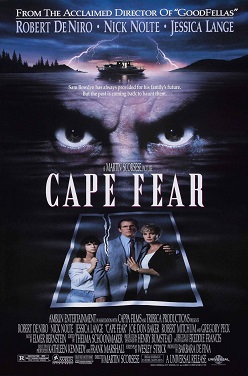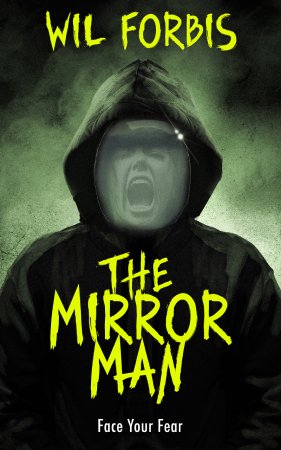
That it was my third viewing of Martin Scorsese’s remake of the film noir classic that prompted this review tells you everything you need to know. I don’t watch crappy films three times.
But even on repeat, Cape Fear is a magnificent film. The plot drives forward, the tension simmers before exploding into a violent denouement, the actors play their a-game, and the cinematography is gorgeous.
Oh, and the music! Somehow I’d forgotten Scorsese reused Bernard Herrmann’s score from the original. Herrmann, famous for Psycho, Taxi Driver and many others, delivers a sonorous brooding main theme that stands with his classic Vertigo motif.
To give a refresher on the plot: Nick Nolte’s lawyer character, Sam Bowden, finds himself suddenly pestered by Robert De Niro’s Max Cady, a convicted rapist whom Bowden gave a lackluster defense to years ago. Bowden—affluent and soft—tries to halt Cady’s intensifying harassment, first by offering to pay him off, then by having him beat up, but Cady will not be stopped.
I mentioned the great acting. It’s brilliantly delivered by Nolte, De Niro, Jessica Lange, Illeana Douglas (and, in cameos, Robert Mitchum and Robert Mitchum, the original film’s stars.) Yet, somehow, Juliette Lewis, in what I believe is her first major role, outshines them all as Bowden’s fifteen-year-old daughter. She perfectly captures the impulsive, noodle-y body movements of a nervous teenage girl desperate for adulthood. The scene when she and Cady first meet is a master class.
Interesting, I had just listened to a podcast on Nietzsche before watching the film and the following thought occurred to me: is Cady the embodiment of the German philosopher’s Ubermensch, a self-contained, self-realized individual who creates his own meaning? Maybe, though Cady’s personal philosophy is also a mix of Christianity (which Nietzsche abhorred) and general madness (which Nietzsche descended into).
A few things in the movie haven’t aged well; some characters’ actions don’t totally add up. (I won’t go further to avoid spoilers.) Nonetheless, remains one of the greats.


